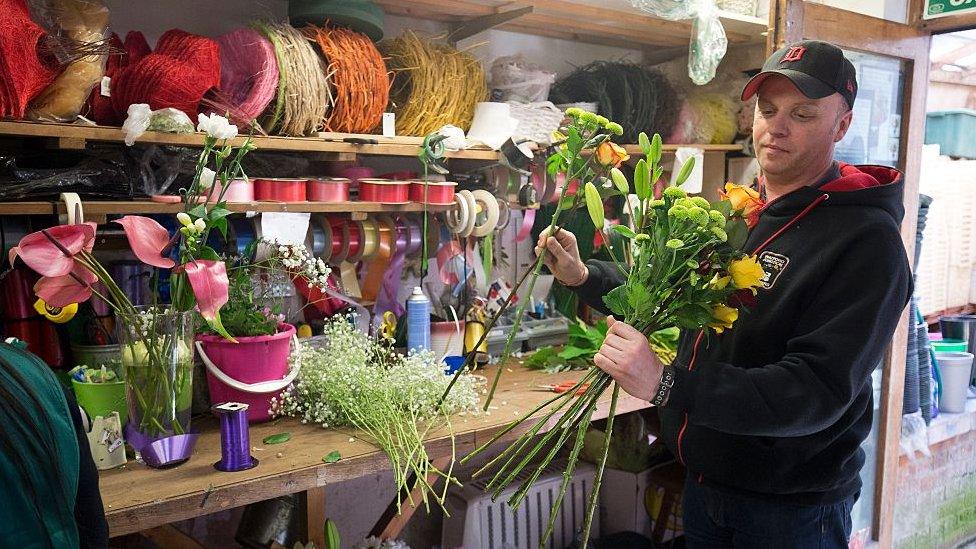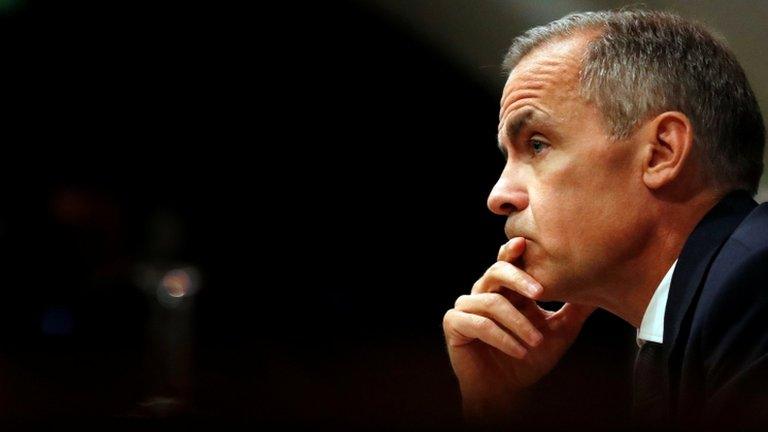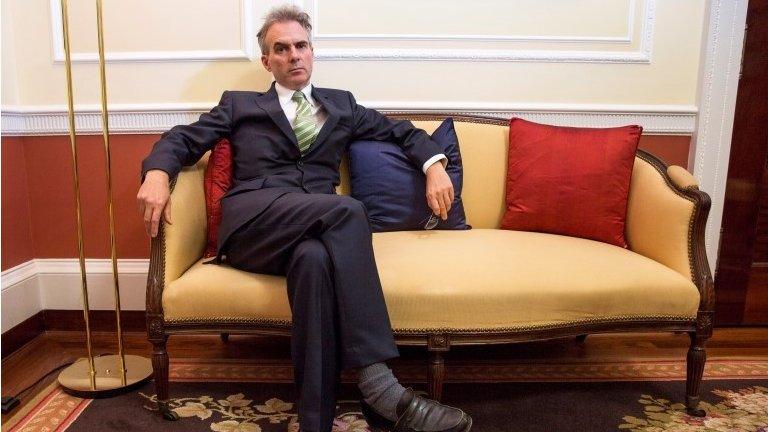Rise in Living Wage may have to wait, say small firms
- Published
- comments

Many small businesses are finding it hard to afford the National Living Wage, the FSB says
Forthcoming rises to the National Living Wage may need to be delayed because of uncertain growth in the economy, small businesses have said.
The wage is currently scheduled to rise to £8.75 an hour by 2020.
But the Federation of Small Businesses (FSB) said that target may have to be reconsidered, following a string of poor economic data.
The FSB said real incomes, productivity and GDP growth were all falling, with only employment levels improving.
As a result, it said the National Living Wage (NLW) should rise from £7.50 an hour to no more than £7.85 next year.
"It's vital that the NLW is set at a level that the economy can afford, without job losses or harming job creation," said Mike Cherry, the FSB's national chairman.
"Cost pressures on small businesses are building, and with most recent economic indicators underperforming, we are now facing the reality that the NLW target may need to be delayed beyond 2020."
Lower profits
The Low Pay Commission is due to make its recommendations to the government on the National Living Wage in the Autumn.
It has to work out whether higher pay rates are affordable, or whether they could damage the jobs market.
The Chancellor, Philip Hammond, will announce the final decision in this year's Autumn Budget.
The FSB's latest research suggests that most small businesses are already paying their staff more than the National Living Wage, but that 43% of firms have had to increase pay rates.
Most small businesses are making lower profits as a result, but 39% have increased their prices to make the pay rises affordable.
The National Living Wage applies only to employees over the age of 25.
Workers younger than that are paid the National Minimum Wage.
- Published3 August 2017

- Published4 August 2017
